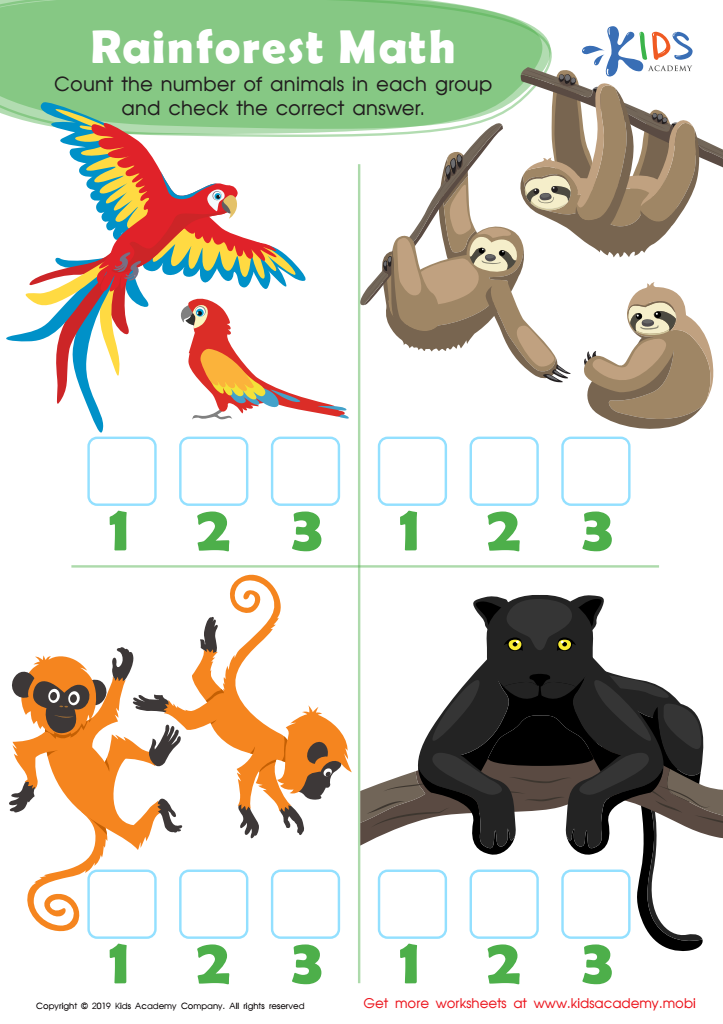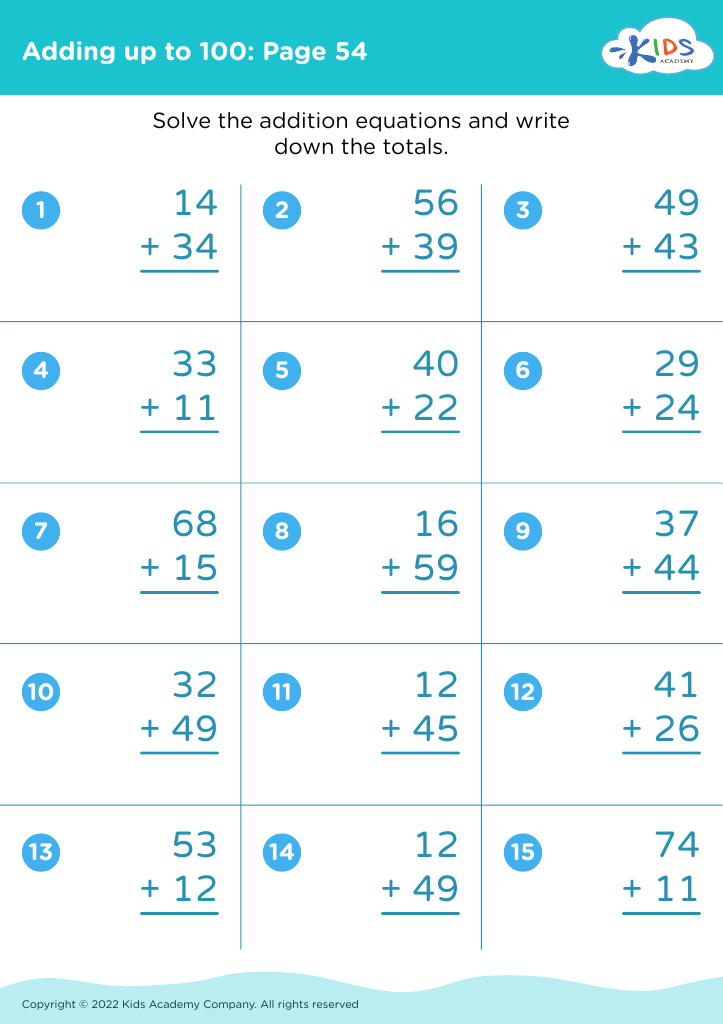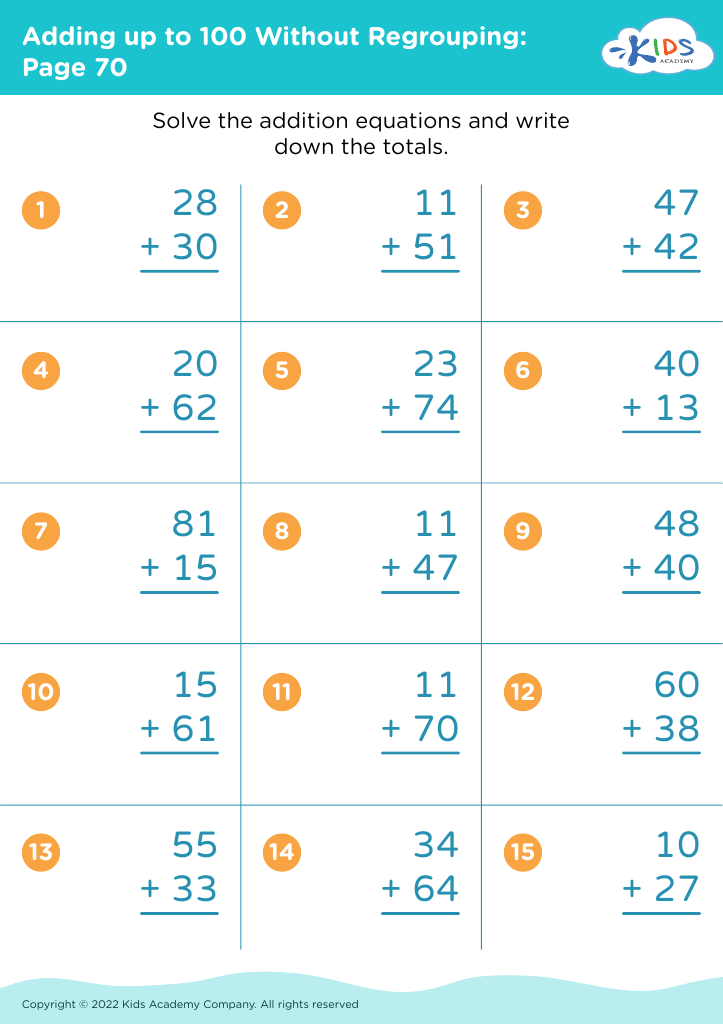Develop subtraction skills Worksheets for Ages 4-8
3 filtered results
-
From - To
Unlock your child's potential with our expertly crafted subtraction skills worksheets designed for ages 4-8. At Kids Academy, our printable worksheets provide engaging, age-appropriate activities that make learning subtraction exciting and fun. Featuring colorful graphics and interactive exercises, these worksheets help young learners grasp essential subtraction concepts gradually and confidently. From basic subtraction to more challenging problems, our resources cater to various skill levels, supporting continuous growth and mastery. Perfect for home or classroom use, these printable worksheets will transform math practice into an enjoyable adventure. Start building a solid math foundation today! Visit Kids Academy for more information.


Rainforest Math Worksheet
Developing subtraction skills for children aged 4-8 is crucial for their mathematical foundation and overall cognitive development. At this formative age, children’s brains are like sponges, absorbing information rapidly, which makes it an ideal time to introduce and strengthen fundamental math concepts such as subtraction.
Firstly, subtraction is a core arithmetic skill that underpins many higher-level math operations and real-life problem-solving scenarios. Mastering subtraction helps children understand number relationships, improve their counting abilities, and appreciate the concept of taking away, which is essential for activities such as making change, measuring, and even time management.
Secondly, early proficiency in subtraction boosts children’s confidence in math, which is essential for their academic self-esteem and fosters a positive attitude towards learning. When children feel capable in math, they are more likely to engage with the subject enthusiastically, leading to better educational outcomes in the long term.
Lastly, subtraction skills promote critical thinking and reasoning abilities. Children learn to analyze problems, apply appropriate strategies, and assess the validity of their answers. These cognitive skills are not only pivotal in math but are transferrable to other subject areas and everyday life activities.
In conclusion, focusing on subtraction skills during this key developmental stage lays a strong mathematical foundation, enhances cognitive abilities, and cultivates a positive educational experience, setting the stage for ongoing learning success.



 Assign to My Students
Assign to My Students




.jpg)















